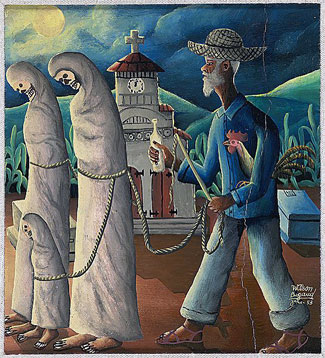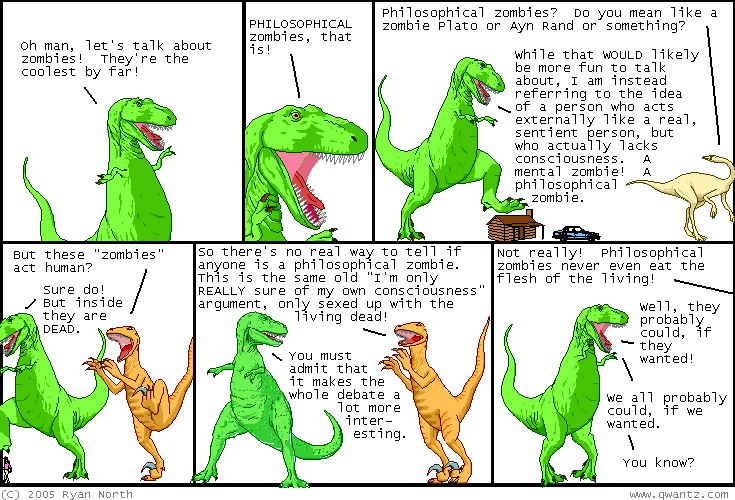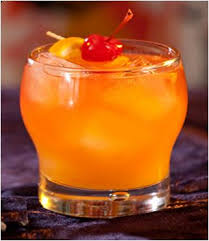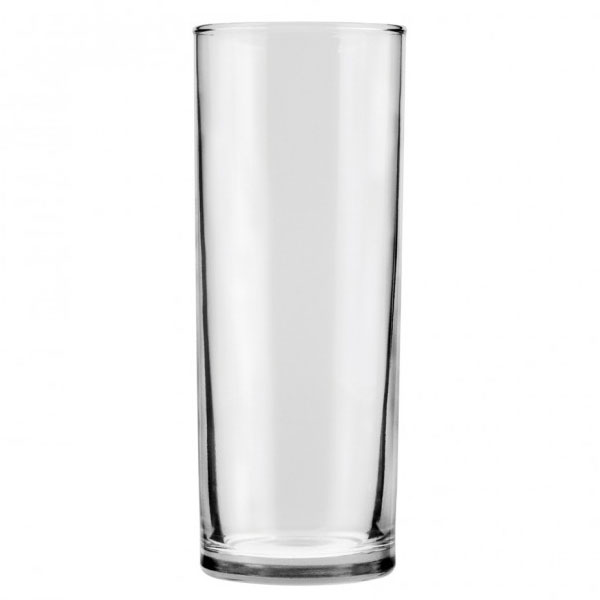 |
| Zonbi (1939) by Wilson Bigaud, Haitian artist |
Haiti and voodoo. The idea of - and name for - zombies originated from Haitian Creole. According to West African Vodou, the dead can be reanimated by a bokor (sorcerer), and then the bokor controls them because they have no will of their own. According to these same legends, part of the zombie's soul (the zombie astral) is kept in a bottle to help the bokor control the zombie, but eventually, God will reclaim the zombie's soul. (Also useful to know: feeding a zombie salt sends it back to the grave.) This is the origin of the voodoo zombies in Haiti, where most claims of zombies are induced by psychoactive drugs. It is said that Haitians don't fear zombies; they fear being turned into zombies.

Zombie computers. Not to be confused with the Irish electro band Zombie Computer, these are computers that are connected to the internet but have been hacked and can be used to perform malicious acts like spamming, hosting phishing attacks, click fraud, and DoS attacks. Usually, the computer's user is unaware of any nefarious goings-on, which makes "zombie computer" a fitting name for this situation. This is becoming a problem for smart phones too, making zombie phones a thing.


Zombie banks. These aren't nearly as fun or interesting as they sound. They're just banks that have an economic net worth under zero, but can stay open because of government credit support helping them to repay their debts. The same can be said of zombie companies in similar situations.

Zombie fungus and zombie ants. Ophiocordyceps unilateralis is a parasitic fungus that alters the behavior of ants (specifically the Camponotus leonardi ant, but it will settle for similar ants in a pinch). An ant falls from its home in a tree, climbs up the stem of a plant, grabs the leaf, and dies. Then the fungus can eat its insides and eventually grow outside of it (see above) where it can release its spores and infect new ants. It's all about proliferation.

For other types of naturally-occuring parasitic-type real-life "zombies," you should go read Peeps by Scott Westerfeld. Seriously, it alternates between awesome biology lesson chapters and narrative fictional chapters. It's amazing.
 |
| Thank you, Dinosaur Comics. |
Philosophical zombies. As the T. Rex from Dinosaur Comics succinctly discussed above, philosophical zombies are a theoretically possible type of person who, while behaving completely like a normal person, are actually lacking sentience (ability to feel and perceive; consciousness or subjectivity) and qualia (individual instances of subjective and conscious experience). Since we can't literally get inside anyone else's head, this is only theoretical, because there would be no way of knowing if any other person is a philosophical zombie. It's more of a thought experiment thing (like most of philosophy is).



Zombie cocktails. These are just delicious; not scary or gross or anything... just yummy. The idea is that if you drink too many of them, you turn into a drooling, brainless zombie, but that's true of any drink with a high alcoholic content. Due to the popular nature of zombies (as fictional entities), there is an abundance of recipes for zombies (drinks). Usually, though, they're a lot of fruit juice and rum and some other kind of liquor. They're typically served in a zombie glass (pictured above, right).
No comments:
Post a Comment